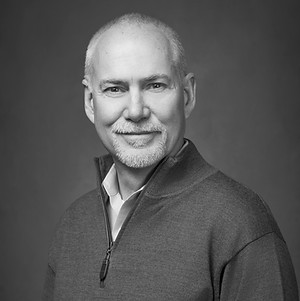
About VWDC
Established by the Virginia General Assembly in 2007, the Virginia Winery Distribution Company (VWDC) is a non-profit, non-stock corporation housed within the Virginia Department of Agriculture and Consumer Services (VDACS) to provide wholesale wine distribution services for licensed Virginia wineries and farm wineries. Many wineries in the Commonwealth use VWDC to distribute and personally deliver their wines to local retailers. The VWDC Board is composed of two representatives nominated by the Virginia Wine Wholesalers Association, two representatives nominated by the Virginia Wineries Association, and the VDACS Commissioner.

Meet Our Board Members

STANLEY K JOYNES III
BOARD CHAIRMAN
Valley Road Vineyards
After practicing law in Richmond for 30+ years, Stan co-founded and became CEO of Valley Road Vineyards in Afton in 2015. He took his degrees from nearby University of Virginia and is also an alumnus of the PVCC programs in Viticulture and Enology. Stan is a member of the Legislative Affairs Committee of the Virginia Winery Association.

JAY W COLSTON III
BOARD MEMBER
Virginia Imports, LTD
Joined the Beitzell and Co., a Washington DC wine and spirits wholesaler, in 1984 as the fourth generation of the Colston family. Beitzell and Co. was established in 1898. In 1988 the Colston family purchased Virginia Imports Ltd, then a 10 year old company that formed out of a local beer distributorship in 1978.

JOSEPH GUTHRIE
BOARD MEMBER
VDACS Commissioner
Joe Guthrie brings to the job of Commissioner of VDACS decades of experience in production agriculture as a 6th generation owner of a beef cattle farm in Pulaski County, fifteen years of experience as a member of the faculty of the College of Agriculture and Life Sciences at Virginia Tech, leadership roles in several agricultural industry organizations, and ten years as a local elected official in Pulaski County, including the final two as Chair of the Board of Supervisors. Joe holds degrees in Agricultural Economics from Virginia Tech and from Massey University in New Zealand where he was a Fulbright Scholar.

DAVID DRILLOCK
BOARD MEMBER
Fifty-Third Winery and Vineyard
David (Dave) Drillock and his wife Susan began looking at farm properties in Virginia in 2011 with two criteria in mind, ideal for their farm animals in New Jersey and ability to grow wine grapes. They found their ideal location in 2013 and relocated to their farm, on the border of Albemarle and Greene Counties in 2014. The first five-acre block was planted in 2015 and expanded over the next five years to 12 acres. They took the “crazy” plunge and purchased the former Cooper Vineyards in July of 2015 and renamed it Fifty-Third Winery and Vineyard. Dave’s wine education began years earlier studying and helping in the vineyard for a season at a winery in New York’s Hudson River Valley. He has taken numerous classes in viticulture and enology at PVCC and engaged with various subject matter experts in Virginia’s winegrowing and winemaking. Dave is a graduate from Rutgers University with a degree in accounting and after a 36-year career, retired as Chief Financial Officer of Cytec Industries Inc. He now gladly calls himself a Winegrower! His goals are to help the Virginia Wine Industry be recognized as one of the best wine regions in the world and for their winery to be a sustainable producer of premium Virginia wines for many generations to enjoy.

KENNETH TAMBASCHI
BOARD MEMBER
Republic National Distributing Company
Kenneth Tambaschi is a senior leader at Republic National Distributing Company with more than 20 years of experience across wine and spirits. His background includes supplier relationship management, portfolio strategy, and revenue optimization in highly competitive markets. He brings a growth focused, accountability driven leadership approach, emphasizing ethical business practices, disciplined execution, and long term partnership development, with deep familiarity in the Virginia beverage alcohol landscape.
The History of VWDC
The mandatory use of a wholesale distributor in the Commonwealth had been in place since the end of Prohibition. In 1980, the General Assembly exempted farm wineries from the three-tier system of distribution and allowed them to sell directly to ABC licensees. However, on July 1, 2006, a U.S. district court invalidated Virginia’s distribution laws, and farm wineries were then required to use the three-tier distribution system to sell their wines. The financial impact of this decision was felt by many of the wineries. They were either too small for a wholesale distributor to consider, or the costs were too high. Then, in 2007, the General Assembly approved legislation allowing small farm wineries to distribute as many as 3,000 cases of their own wine each year to stores and restaurants through the state agriculture department. Thus, the VWDC was born and brought wholesale distribution back to the farm wineries. Today, more than 200 wineries in the Commonwealth of Virginia are signed on with VWDC.
Virginia licensed wineries may distribute their products only through distributors for wholesale. The VWDC is a mechanism that exists to provide a distributor through which licensees may essentially self-distribute their products in small quantities (up to 3,000 cases per calendar year).
